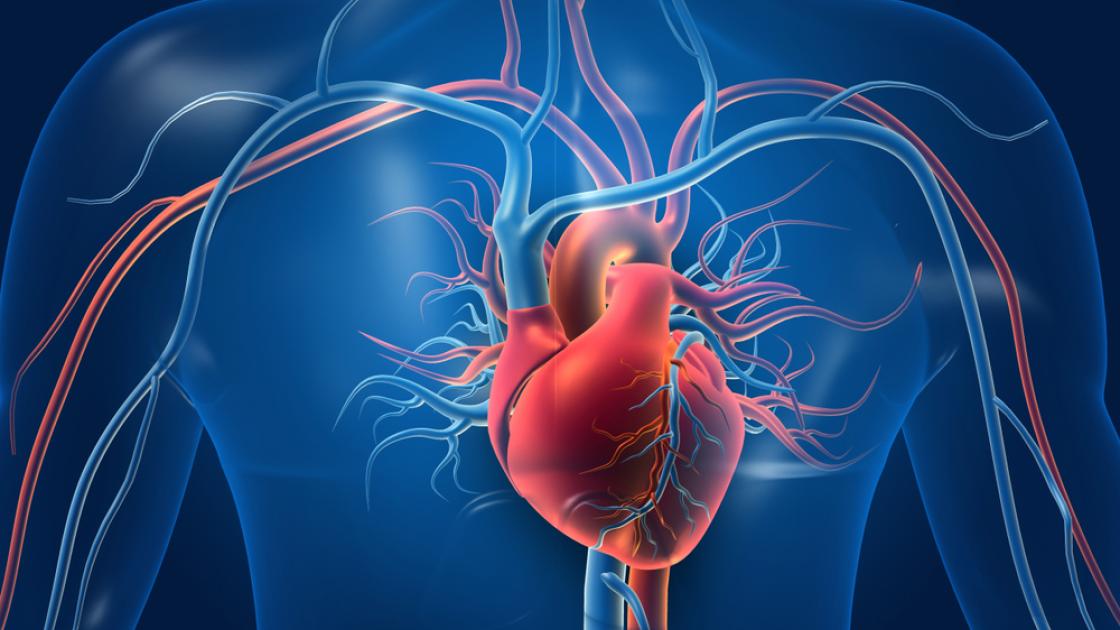
The great pretender: cardiac amyloidosis
Have you ever heard of stiff heart syndrome? Known clinically as cardiac amyloidosis, this condition mimics other heart health problems and, as a result, is often overlooked and untreated—which could lead to serious and even deadly complications.
Here's what you need to know about cardiac amyloidosis.
What is cardiac amyloidosis?
Cardiac amyloidosis occurs when abnormal proteins called amyloid build up in the heart. As the amyloid proteins accumulate and start to replace healthy heart tissue, the heart begins to have a harder time working properly. Over time, this can cause the heart to become thick and stiff, making it unable to fill effectively and pump enough blood with each heartbeat. Amyloid proteins can also disrupt the way electrical signals are transmitted through the heart. If left untreated, cardiac amyloidosis can lead to heart failure or death.
Amyloidosis can affect other organs and tissues in the body, too, including the kidneys, liver, spleen, nervous system and digestive tract.
Who's at risk?
Although Cardiac amyloidosis was once considered rare, with advances in cardiac imaging, this condition is felt to be more prevalent than previously thought.. Risk factors for this condition include:
- Older age (most people diagnosed with this condition are above the age of 50)
- Male gender
- Family history of cardiac amyloidosis
- Ethnic and/or geographic background (e.g., the condition occurs more often in people of West African descent and in people from European countries like Portugal, Japan, Sweden and Finland)
- Being a long-time dialysis patient
Cardiac amyloidosis has several possible causes, including genetics (e.g., inheriting the condition from a parent) or as a result of other medical conditions, including inflammatory diseases and certain kinds of cancer.
Warning signs and symptoms of cardiac amyloidosis
Most signs and symptoms of cardiac amyloidosis occur in other health conditions, too. In fact, many of the signs and symptoms don't even directly involve your heart. These include:
- Unusual bruising
- Swollen tongue
- Hearing and vision problems
- Numbness and tingling in the arms or legs
- Carpal tunnel syndrome (compression of the median nerve inside the wrist)
- Lumbar spinal stenosis (narrowing of the bony spaces in your lower back)
Other signs and symptoms of cardiac amyloidosis—which may not show up until the disease reaches a more advanced stage—include:
- Shortness of breath
- Fatigue
- Heart palpitations
- Enlarged veins in the neck
- Swollen liver
- Kidney problems
- Heart murmur (an abnormal sound that a doctor can hear when listening to the heart)
- Swelling (edema), especially in the feet, ankles, legs and abdomen
In the early stages of the disease, it's common not to have any symptoms.
Diagnosis and treatment options for cardiac amyloidosis
Because it often mimics other diseases, cardiac amyloidosis can be hard to diagnose. Doctors use a variety of tests and interventions to rule out other conditions and confirm a diagnosis. Tools that can help in the diagnostic process include blood and urine tests, CT scans of the chest or abdomen, heart ultrasound (echocardiogram), heart nuclear scans, heart MRIs and tests that look at the heart's electrical activity, like an electrocardiogram (ECG). Occasionally, a biopsy of heart muscle is needed to confirm the diagnosis. Doctors also rely on thorough patient and family history and a physical exam. In some cases, genetic testing may be helpful.
Treatment of cardiac amyloidosis depends on a few different factors. Medications are commonly used and carefully selected for each individual patient with cardiac amyloidosis, depending on their specific needs. Doctors will often prescribe medications that can help:
- Reduce swelling and inflammation
- Prevent the formation of amyloid proteins
- Thin the blood and prevent blood clots
- Control the heart rate
Other treatments for cardiac amyloidosis include the implantation of heart devices like pacemakers and implantable cardioverter defibrillators (ICDs). In advanced cases with permanent and severe heart tissue damage, a heart transplant might be necessary for appropriate candidates.
The important thing to know is that cardiac amyloidosis is treatable, and outcomes are usually better when treatment starts early, before any permanent heart damage occurs.
Do you have concerns about your heart health?
If you're worried about unusual signs and symptoms, find a doctor today who can help. Our experienced health care providers at SIU Medicine are here to help you stay well-informed about your health and personal risk factors.




